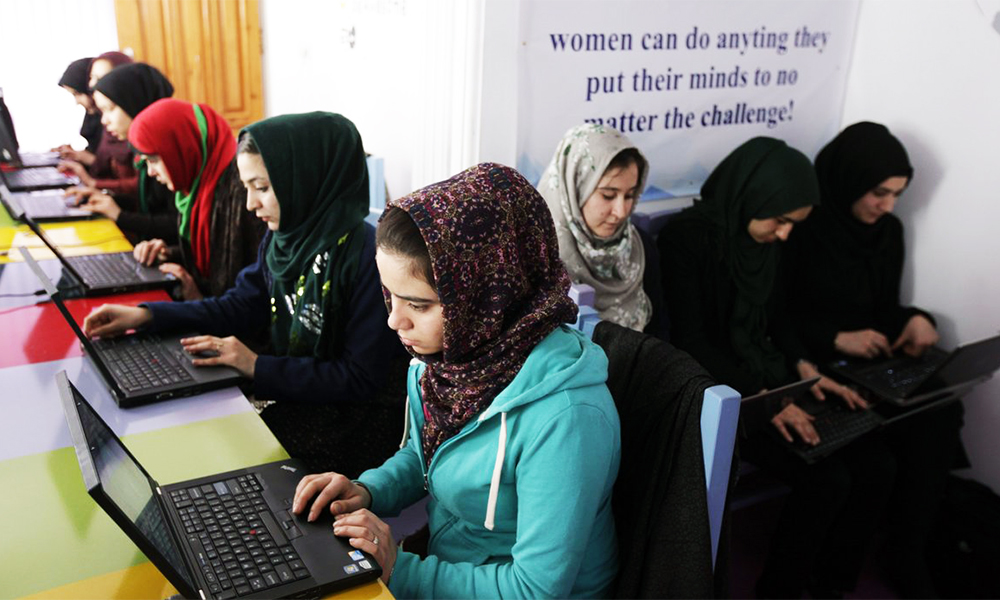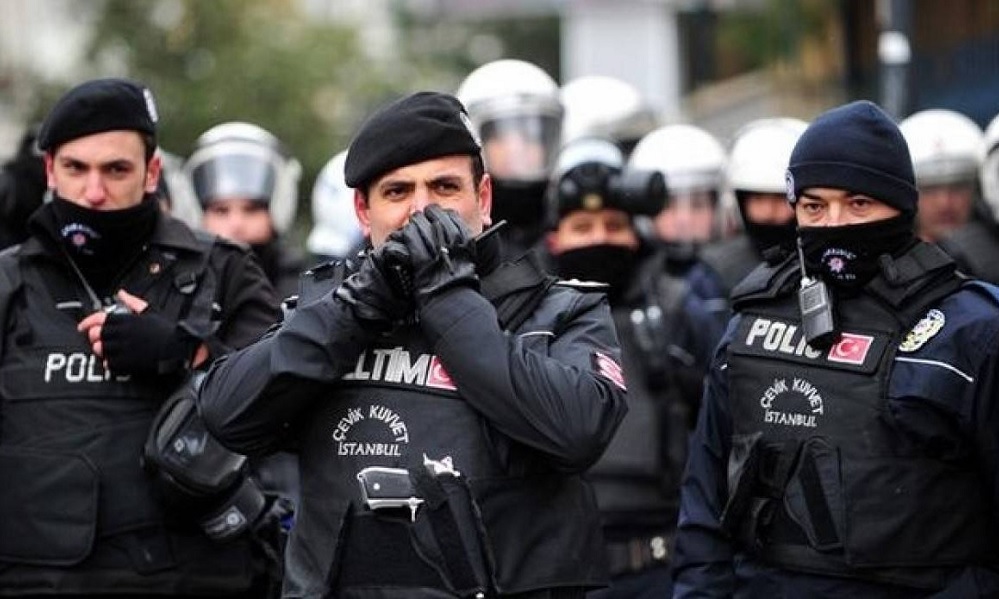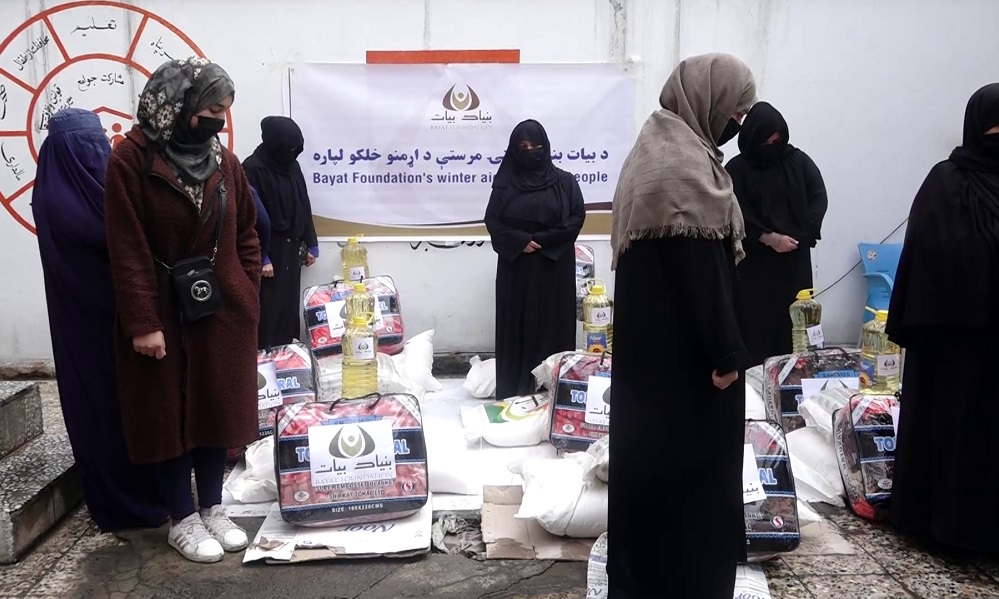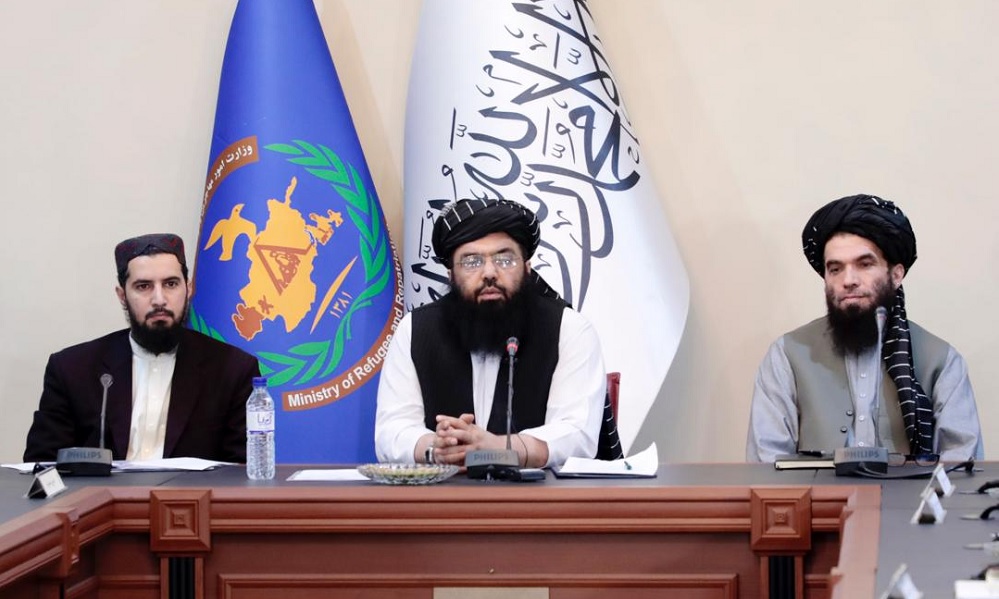Latest News
Aid agencies warn of ‘life-threatening consequences’ of NGO ban

Heads of the Inter-Agency Standing Committee on Afghanistan, under the umbrella of the World Health Organization, have collectively said banning women from humanitarian work has immediate life-threatening consequences for all Afghans.
In a statement issued on Wednesday, the agencies said the Islamic Emirate of Afghanistan’s (IEA) decision to ban women from working for NGOs was a “major blow for vulnerable communities, for women, for children, and for the entire country.”
The organizations said female staff are key to every aspect of the humanitarian response in Afghanistan.
“They are teachers, nutrition experts, team leaders, community health workers, vaccinators, nurses, doctors, and heads of organizations. They have access to populations that their male colleagues cannot reach and are critical to safeguarding the communities we serve,” read the statement.
“They save lives,” the organization said.
Their professional expertise is indispensable and their participation in aid delivery is “not negotiable and must continue”, the statement noted.
Since the IEA’s announcement on Saturday, some programmes have had to stop temporarily due to the lack of female staff. “This comes at a time when more than 28 million people in Afghanistan, including millions of women and children, require assistance to survive as the country grapples with the risk of famine conditions, economic decline, entrenched poverty and a brutal winter,” the statement read.
However, the agencies said they will “endeavor to continue lifesaving, time-critical activities unless impeded”.
“But we foresee that many activities will need to be paused as we cannot deliver principled humanitarian assistance without female aid workers.
“We urge the de facto authorities to reconsider and reverse this directive, and all directives banning women from schools, universities and public life. No country can afford to exclude half of its population from contributing to society,” the statement read.
Signatories to the statement were as follows:
- Mr. Martin Griffiths, Emergency Relief Coordinator and Under-Secretary-General for Humanitarian Affairs (OCHA)
- Mr. Qu Dongyu, Director-General, Food and Agriculture Organization (FAO)
- Ms. Shahin Ashraf, Chair, International Council of Voluntary Agencies (ICVA) Board, (Islamic Relief)
- Mr. Ignacio Packer, Executive Director, International Council of Voluntary Agencies (ICVA)
- Ms. Miriam Sapiro, President and Chief Executive Officer, InterAction
- Ms. Tjada D’Oyen McKenna, Chief Eexcutive Officer, Mercy Corps
- Ms. Janti Soerpinto, President and Chief Executive Officer, Save the Children US
- Mr. António Vitorino, Director General, International Organization for Migration (IOM)
- Mr. Volker Turk, United Nations High Commissioner for Human Rights (OHCHR)
- Mr. Andrew Morley, President and Chief Executive Officer, World Vision International
- Ms. Sofia Sprechmann Sineiro, Secretary-General, CARE International
- Ms. Paula Gaviria Betancur, United Nations Special Rapporteur on the Human Rights of Internally Displaced Persons (UN SR on HR of IDPs)
- Mr. Achim Steiner, Administrator, United Nations Development Programme (UNDP)
- Dr. Natalia Kanem, Executive Director, United Nations Population Fund (UNFPA)
- Ms. Maimunah Mohd Sharif, Executive Director, United Nations Human Settlement Programme (UN-Habitat)
- Mr. Filippo Grandi, United Nations High Commissioner for Refugees (UNHCR)
- Ms. Catherine Russell, Executive Director, United Nations Children’s Fund (UNICEF)
- Ms. Sima Bahous, Under-Secretary-General and Executive Director (UN Women)
- Mr. David Beasley, Executive Director, World Food Programme (WFP)
- Dr. Tedros Adhanom Ghebreyesus, Director-General, World Health Organization (WHO)
In another collective statement, issued Thursday, the Foreign Ministers of Australia, Canada, Denmark, France, Germany, Italy, Japan, Norway, Switzerland, the Netherlands, the United Kingdom, and the United States and the High Representative of the European Union said they are gravely concerned that the order barring female NGOs from the workplace puts millions of Afghans at risk.
“We call on the Taliban to urgently reverse this decision,” they said.
“Unless they (women) participate in aid delivery in Afghanistan, NGOs will be unable to reach the country’s most vulnerable people to provide food, medicine, winterization, and other materials and services they need to live,” said the group of foreign ministers.
Latest News
Turkish intelligence captures a Daesh member near the Durand Line

Turkish intelligence agents have captured a senior member of Daesh near the Durand Line, reportedly preventing planned suicide attacks in Turkey and other countries, according to Turkey’s state-run Anadolu Agency on Monday.
The suspect, identified as Mehmet Goren, is a Turkish citizen. He was apprehended during a covert operation and transferred to Turkey. Details on the timing of the operation or the involvement of Afghan and Pakistani authorities were not disclosed.
According to the report, Goren had risen through the ranks of Daesh and was allegedly tasked with carrying out suicide bombings in Turkey, Pakistan, Afghanistan, and Europe.
Daesh has a history of deadly attacks in Turkey, including the January 1, 2017 shooting at an Istanbul nightclub that killed 39 people.
Anadolu Agency reported that Goren’s arrest also provided intelligence on the group’s recruitment strategies and planned activities.
Latest News
Dozens of needy families in Kabul receive winter aid from Bayat Foundation

Dozens of needy families in Kabul’s fifth district have received essential winter assistance from the Bayat Foundation, as part of ongoing efforts to ease hardship during the cold season and worsening economic conditions.
According to foundation officials, the aid package includes staple food items such as flour, rice, and cooking oil, along with warm blankets to help families cope with freezing temperatures. Haji Mohammad Ismail, Deputy Head of Bayat Foundation, said the distribution began in Kabul and will soon be expanded to other provinces.
“Our assistance includes flour, rice, cooking oil, and blankets,” Ismail said. “Today, we started distributing these items in Kabul’s fifth district, and God willing, the aid will reach other provinces in the near future.”
Afghanistan continues to face widespread poverty, unemployment, and food insecurity, with many families struggling to meet basic needs, particularly during winter when access to work and heating becomes more difficult.Humanitarian organizations and charitable foundations have stepped up relief efforts to support those most affected.
Beneficiaries welcomed the assistance, describing it as a lifeline. “May God bless you for helping the poor. We had nothing and no work,” said one recipient. Another added, “Thank you for your help. Our flour was almost finished.”
Bayat Foundation officials stressed that winter aid distributions will continue in Kabul and other provinces in the coming days, as part of their broader commitment to supporting needy families across the country.
Latest News
Nearly seven million Afghan refugees return home since Islamic Emirate’s takeover

Since the Islamic Emirate came to power, approximately 6.8 million Afghans have returned home, either voluntarily or forcibly, from neighboring countries and other nations, according to the Minister of Refugees and Repatriation.
Mawlawi Abdul Kabir, speaking at a meeting on finalizing a draft plan for a permanent migration solution in Afghanistan, added that 1.3 million Afghans have been internally displaced due to natural disasters during the same period.
With winter approaching, widespread poverty and severe cold are threatening thousands of lives. Meanwhile, the forced expulsion of Afghan migrants from neighboring countries, particularly Iran and Pakistan, continues.
The Islamic Emirate has repeatedly urged neighboring states to allow migrants to return voluntarily. According to UNHCR, over two million Afghans have returned from Iran and Pakistan since the start of 2025.
-

 Latest News2 days ago
Latest News2 days agoAfghanistan signs 30-year deal for marble mining in Daikundi
-

 Latest News4 days ago
Latest News4 days agoAfghan border forces prevent illegal entry of hundreds into Iran
-

 Latest News3 days ago
Latest News3 days agoPakistan summons Afghan diplomat over deadly attack in North Waziristan
-

 Latest News2 days ago
Latest News2 days agoAfghan health minister calls for medical cooperation between Kabul and New Delhi
-

 Latest News4 days ago
Latest News4 days agoJapan allocates nearly $20 million in humanitarian aid for Afghanistan
-

 Latest News3 days ago
Latest News3 days agoKarzai urges reopening of girls’ schools and universities for Afghanistan’s bright future
-

 Health5 days ago
Health5 days agoAfghanistan seeks India’s support in standardizing traditional medicine
-

 World5 days ago
World5 days agoUS readies new Russia sanctions if Putin rejects peace deal, Bloomberg News reports
























